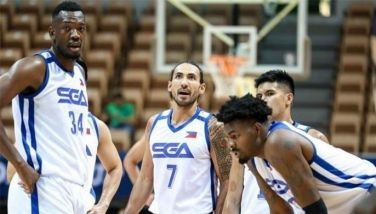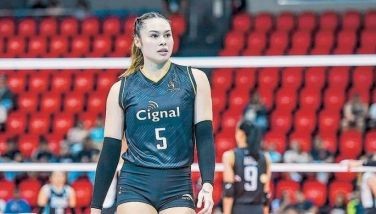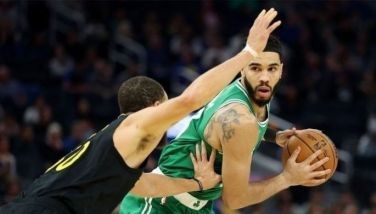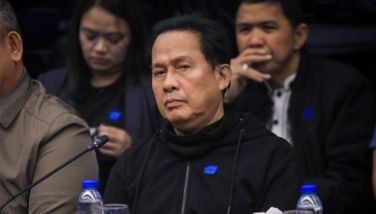Missed opportunity for sports in SONA
Although she was in a fighting mood, and she even acknowledged in the State of the Nation Address (SONA) audience, Manny Pacquiao, the most famous Filipino sportsman ever, President Arroyo had nothing to say about sports. She did, however, mention quite a mouthful on health and education which are, in reality, intimately linked to sports.
The sports community could have lobbied with the President and her speechwriter(s) to put in a word or two on her administration’s record in sports and what it intends to do with respect to grassroots sports which addresses itself to what is called the “BOP”, the Base of the Pyramid. Some call it Bottom of the Pyramid, to further emphasize the ideal of getting the poor into the mainstream of government and societal programs and initiatives, but the more politically correct term is Bottom of the Pyramid.
At any rate, if the Arroyo administration wants to leave a legacy before it is supposed to step down in 11 months, that purpose will be well served if it gets the National Economic and Development Authority (NEDA) and the Philippine Sports Commission (PSC) to get the rest of the government machinery to help implement the United Nations International Charter of Physical Education and Sport, to which the Philippines is a signatory.
We are told that President Arroyo wants the PSC to pursue a grassroots sports program. Perhaps the first question to ask is what constitutes grassroots sports program? Another question to ask what is the priority components of a grassroots sports program?
Dr. Aparicio Mequi, former PSC chairman and present Dean of the College of Physical Education of Foundation University in Dumaguete and a bronze medalist in athletics in the 1954 Asian Games in Manila, offers some instructive insights.
I share the view of Mequi, a sports scholar for more than half a century, that there should be a philosophical anchor for the program. That anchor is the said UN International Charter. Instead of just almost exclusively devoting our attention and resources to the pursuit of that elusive Olympic gold, let us put added impetus to making our commitments in that Charter alive and operative. Promoting that Charter, by the way, will help us institutionalize certain pivotal policies and programs that will ultimately lead to the Olympic gold medal. A strong mass base is a sine qua non to a viable elite sports program, unless you make a policy of indiscriminately granting citizenship to foreigners who do not even have a single milliliter of Filipino blood.
Article one of the Charter states that “the practice of ....sports is a fundamental right for all...and this right should not treated as different in principle from the right to adequate food, shelter and medical care.” Under this article, it is very clear that sport is not only for the athletically gifted but for everyone. Sport is for all.
Mequi points out that in March 2003, the UN Inter-Agency Task Force on Sports for Development and Peace declared that “The aim of UN activities involving sports is not the creation of new sporting champions and the development of sports, but rather, the use of sports in broader development and peace-keeping activities.” The declaration exhorted UN member-countries to utilize “sports for health, education, development and peace.”
These two statements state that government sports programs should not focus on the “creation of new sporting champions” yet the sports community seems to be obsessed with precisely that objective. This is to say however that there is nothing “wrong” with that objective but rather it is too narrow and too short term. It must also be emphasized that sporting champions, like Pacquiao, and an Olympic gold will galvanize and uplift the sagging spirits of a divided nation bedeviled by natural and man-made calamities.
The priority project in a grassroots program is the training and education of the PE and sports teachers, sports coaches, barangay sports coordinators, sports scientists, public assembly facility managers, who will prevent the deterioration of several world-class facilities in many regions and stop them from becoming white elephants.
One needs to imagine the ideal of PE teachers, coaches, sports coordinators, wellness and sports science specialists from all over the Philippines listening to local and overseas experts giving lectures and practical lessons in colleges and universities through teleconferencing facilities in partnership with the PSC’s Philippine Institute for Sports (PHILSPORTS). This, to Mequi’s mind, is the real grassroots program. Trained sports personnel to communitize sports (by bringing sports to the local communities), is the key to grassroots sports.
The SONA was a big opportunity to articulate our commitment to make sports more egalitarian. But it wasn’t used... not even one minute of the 55-hour speech.
- Latest
- Trending





























